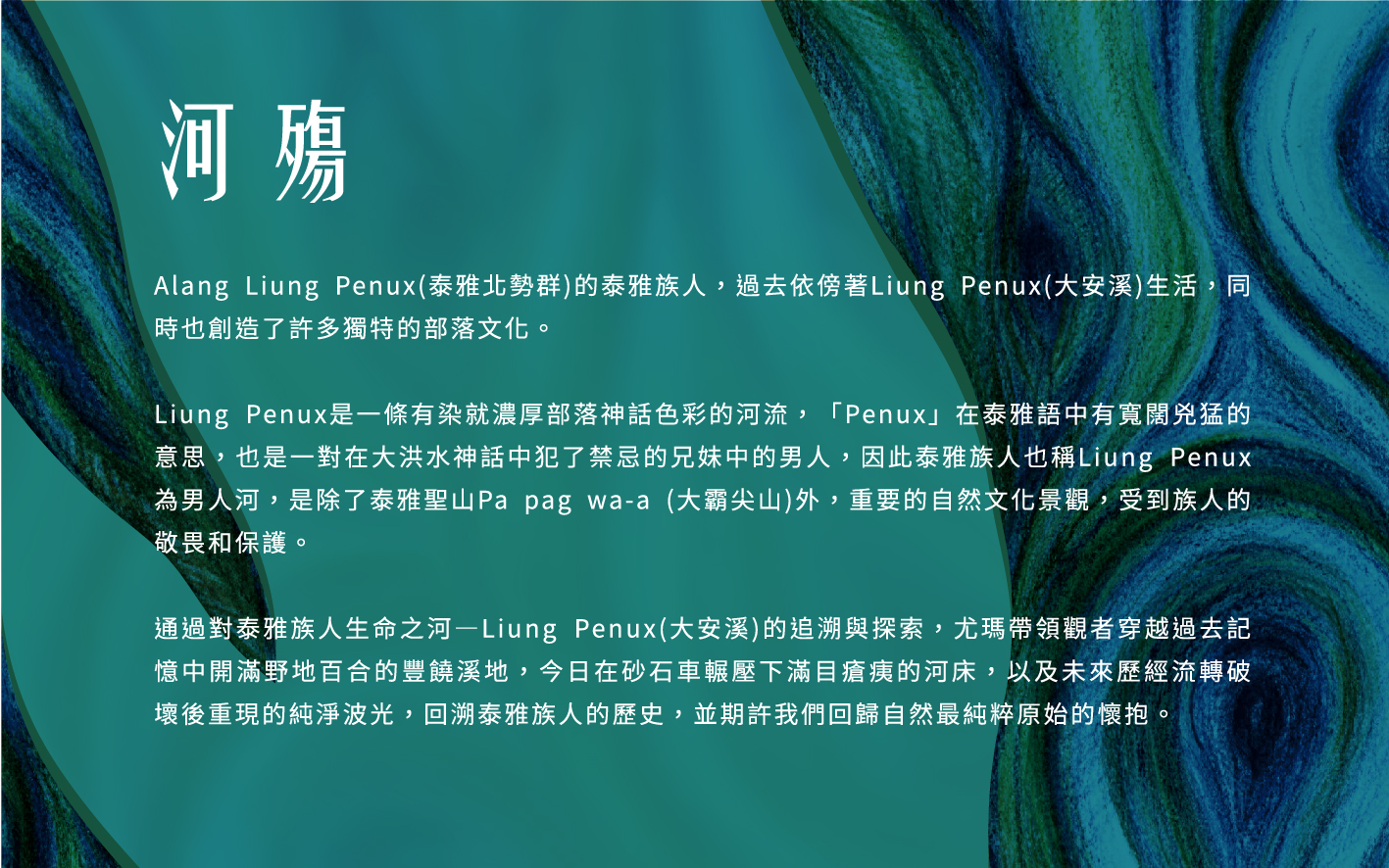date of issue:2021-02-26

Alang Liung Penux (Atayal people of the Northern Tribe) in the past relied heavily on Liung Penux (the Da’an River) for their livelihood. The river was also a source of some of their unique traditional culture, and figures into their legends. “Penux” is a word in the Atayal language that carries an intensely masculine meaning. In a legend describing the river’s origin, tribespeople escape heavy rain and flooding by ascending the sacred Pa pag wa-a (Dabajian Mountain), where they discover a brother and sister who have been living as husband and wife. As this is strictly forbidden, the tribespeople punish the siblings by casting them out into the surging waters. The waters immediately recede, and two rivers are formed: one, the river of femininity, now called Dajia River; and the other, the river of masculinity, Liung Penux. After the Pa pag wa-a mountain, Liung Penux is the Northern Atayal’s second most sacred natural body.
Yuma Taru takes viewers on a journey to the river’s past to from when it was at its cleanest and most beautiful and covered by blankets of wild lilies; to the present, the aftermath of the river being ravaged by dump trucks extracting gravel from the riverbed; to the future, when lilies and clear reflections will again gleam the surface. Tracing Atayal history, culture, and identity, the Da’an River was always crucial, and Yuma Taru dreams of returning it to its ancient natural beauty.
